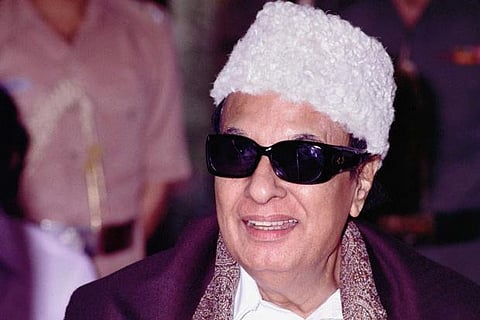

Chennai
During election time, political rivals vying for the maximum mindshare of people tend to piggyback on the legacies of bigwigs who have come and gone before them. The Gandhi family still falls back on the legacy of Jawaharlal Nehru and the sacrifices of Indira Gandhi, while Prime Minister Narendra Modi often invokes the Mahatma. Tamil Nadu is no stranger to this phenomenon. Recently, actor Kamal Haasan and the president of Makkal Needhi Maiam claimed his stake to the legacy of the former Chief Minister, late MG Ramachandran. Addressing his party cadre, Haasan stated that he grew up on MGR’s lap, even as he pointed out that several ministers might not even have had an opportunity to see him in person.
However, Haasan is just one more in a long line of political aspirants who hopes to springboard with the help of Brand MGR. His friend and potential political rival Rajinikanth also promised an ‘MGR Raj’ around two years ago. So what was this magic of MGR that holds the promise of success even 34 years after the passing of the Makkal Thilagam? Political observers believe MGR’s ideology was a breath of fresh air, in a milieu that had been brimming with hardline Dravidian principles. In the case of Periyar, founder of Dravidar Kazhagam, a significant quantum of his efforts was focussed on removing Brahminical dominance from Tamil society, and advocating an independent state for all Dravidians. Periyar’s follower CN Annadurai, founder of the DMK, was also a rationalist like his guru and was at the forefront of the anti-Hindi agitations in TN. It was in the midst of such a polarised era in politics that MGR, already a successful film star, broke away from the DMK and decided to start his own party, the AIADMK.
In addition to shrewd statesmanship and an inclusive everyman philosophy, MGR routinely undertook pilgrimages to famous shrines such as the Sri Mookambika Temple in Kollur and desisted from imposing any austere, anti-religious principles on his supporters. This is believed to have helped remove the barrier of religious affinity in accepting MGR as a leader, a move that worked wonders in Tamil Nadu, which was traditionally steeped in spirituality and religion. MGR worked hard to be seen as a messiah of sorts for the downtrodden, an image well-cultivated considering his do-gooder roles in films. The leader often dipped into his coffers to offer relief funds and materials during natural calamities such as floods, cyclones, and droughts. The very mention of his name was potent enough to conjure up images of a prosperous welfare state that was replete with freebies and emergency assistance for the poor. The model worked well for MGR’s protege, the late CM J Jayalalithaa. After MGR’s passing, she too claimed to be his political successor, ousting an outfit headed by her mentor’s widow, Janaki. The six-time CM for over 14 years, successfully carried forward his philosophy with her extensive social welfare measures.
However, despite the freebie culture now rampant in TN, it’s clear that lightning doesn’t strike twice. Analysts believe the only other politician outside AIADMK who may have benefitted from MGR’s legacy was actor Vijayakanth who founded DMDK in 2005. Referring to himself as ‘Karuppu MGR’, he won an impressive 29 seats in the 2011 assembly elections and became the official Opposition leader. But that is the exception, not the rule. Leaders thinking MGR’s mantle is still up for grabs often forget that legacies are tricky things. By popular definition, ‘hard legacies’ are concrete measures and enduring policy achievements, while a ‘soft’ legacy’ is the goodwill enshrined in people’s consciousness. It is important to separate hard legacies from softer memories and be aware that no matter who stakes a claim, it’s ultimately people who will decide if they will deem the claimant worthy - based on deeds, not words.
Visit news.dtnext.in to explore our interactive epaper!
Download the DT Next app for more exciting features!
Click here for iOS
Click here for Android